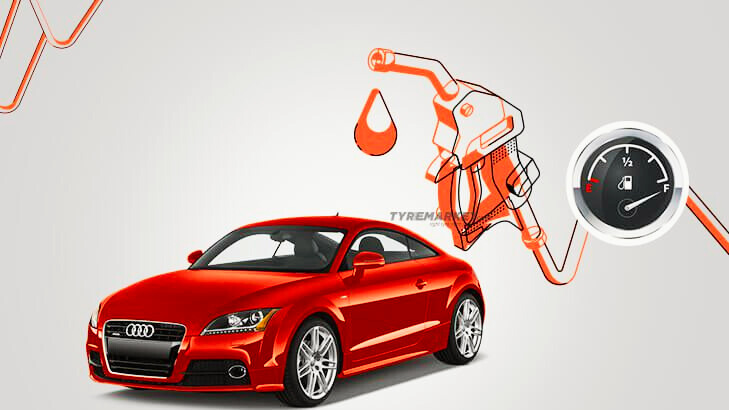Introduction:
Fuel efficiency is a crucial consideration for drivers, especially with the rising costs of fuel and the increasing focus on reducing our environmental impact. Whether you’re driving a compact car, an SUV, or a truck, improving fuel efficiency can save you money and reduce your carbon footprint. This comprehensive guide will provide you with actionable tips on how to improve fuel efficiency, helping you to get more miles per gallon (MPG) and reduce your trips to the gas station.
1. Drive Smoothly and Avoid Aggressive Driving
Aggressive driving, including rapid acceleration, speeding, and hard braking, is one of the biggest drains on fuel efficiency. According to the U.S. Department of Energy, aggressive driving can lower your gas mileage by up to 30% on highways and 40% in stop-and-go traffic.
Tips for Smooth Driving:
- Accelerate Gradually: Press down on the gas pedal gently rather than flooring it.
- Coast to Stops: Anticipate traffic lights and slow down gradually instead of braking abruptly.
- Maintain a Steady Speed: Use cruise control on highways to maintain a constant speed.
By driving more smoothly, you can significantly improve your fuel efficiency and reduce wear and tear on your vehicle.
2. Reduce Excess Weight
The heavier your vehicle, the more fuel it requires to move. Removing unnecessary items from your car can lighten the load and improve your MPG. For every 100 pounds of extra weight, fuel economy can drop by around 1-2%.
How to Reduce Weight:
- Clean Out the Trunk: Remove any unnecessary items like sports equipment, tools, or heavy boxes.
- Remove Roof Racks: If you’re not using a roof rack, consider taking it off to reduce aerodynamic drag and weight.
- Travel Light: Only carry what you need for each trip, especially on longer journeys where fuel efficiency matters most.
Lighter cars require less energy to accelerate, leading to better gas mileage.
3. Properly Inflate Your Tires
Under-inflated tires increase rolling resistance, meaning your engine has to work harder to keep the car moving. Keeping your tires properly inflated is one of the easiest ways to improve fuel efficiency.
Tire Maintenance Tips:
- Check Tire Pressure Regularly: Tire pressure can fluctuate with changes in temperature, so check it at least once a month.
- Use the Manufacturer’s Recommendations: Refer to your vehicle’s owner manual or the tire information sticker inside the driver’s door for the correct tire pressure.
- Invest in a Quality Tire Gauge: A reliable tire pressure gauge will help ensure your tires are always properly inflated.
Properly inflated tires can improve fuel efficiency by up to 3%, according to the U.S. Department of Energy.
4. Maintain a Steady Speed
Maintaining a consistent speed, especially on highways, is key to improving fuel efficiency. Frequent changes in speed force your engine to work harder, burning more fuel. Using cruise control on highways can help you maintain a steady speed and save fuel.
Optimal Speed for Fuel Efficiency:
- Stay Below 65 MPH: Fuel efficiency tends to decrease at speeds above 60 to 65 mph. For every 5 mph you drive over this limit, you’re effectively paying an extra 20 cents per gallon of gas.
- Avoid Idling: If you’re going to be stopped for more than a minute, such as at a railroad crossing or waiting for someone, turn off your engine. Idling consumes fuel without any forward movement.
By adopting a more consistent driving pattern, you’ll optimize your vehicle’s fuel consumption.
5. Avoid Excessive Idling
Contrary to popular belief, idling uses more fuel than restarting your engine. If you’re stopped for more than 10 seconds, it’s usually more fuel-efficient to turn off the engine rather than let it idle. Modern engines are designed to use less fuel when starting than older models, so this strategy is especially effective with newer cars.
When to Turn Off the Engine:
- Waiting for Passengers: Instead of letting the car idle while waiting, turn off the engine.
- At Long Traffic Lights: If you’re stuck at a long red light or in traffic, consider shutting off the engine.
- Warming Up the Car: Modern engines don’t need to warm up for long periods, so it’s better to drive gently for the first few minutes rather than idling.
By minimizing idling, you can improve fuel efficiency by as much as 10-20%.
6. Use the Right Motor Oil
Using the correct motor oil for your car can have a significant impact on fuel efficiency. The wrong type of oil can cause your engine to work harder, reducing your fuel economy.
Oil Tips for Fuel Efficiency:
- Check Your Owner’s Manual: Always use the manufacturer’s recommended oil grade. Using the wrong viscosity can reduce fuel efficiency by 1-2%.
- Choose Energy-Conserving Oil: Look for motor oil labeled as “Energy Conserving,” which contains friction-reducing additives that can improve fuel efficiency.
- Change Oil Regularly: Fresh oil ensures the engine runs smoothly and efficiently, so stick to the recommended oil change intervals in your manual.
Properly maintained and correctly selected oil helps reduce engine friction, improving MPG.
7. Limit Use of Air Conditioning and Electrical Accessories
Running your air conditioning (A/C) and other electrical components, like heated seats, places extra demand on your engine, reducing fuel efficiency. While it’s sometimes necessary, especially in hot weather, using A/C less frequently can lead to fuel savings.
How to Reduce A/C Use:
- Use Ventilation: On cooler days, open your windows or use the car’s ventilation system to circulate air.
- Turn A/C Off at Low Speeds: A/C has a greater impact on fuel efficiency at low speeds, so consider turning it off when driving around town.
- Pre-Cool Your Car: When parked in hot weather, park in the shade or use a windshield sunshade to keep your car cooler and reduce the need for A/C.
By limiting your use of air conditioning and other high-energy accessories, you can improve fuel efficiency, especially during city driving.
8. Keep Up with Regular Maintenance
A well-maintained car runs more efficiently, which in turn helps save fuel. Sticking to your car’s maintenance schedule ensures that everything is working as it should, preventing fuel waste.
Essential Maintenance Tasks:
- Change the Air Filter: A clogged air filter restricts airflow to the engine, which can reduce fuel efficiency. Replace it as recommended by your manufacturer.
- Check Spark Plugs: Worn or faulty spark plugs can misfire, wasting fuel and reducing performance.
- Replace Fuel Filters: A dirty fuel filter can restrict fuel flow, making the engine work harder.
Routine maintenance ensures that your vehicle is operating at its peak efficiency, leading to better fuel economy.
9. Plan Your Trips Wisely
Planning your driving routes and combining trips can significantly reduce the amount of fuel you use. Short trips where the engine doesn’t fully warm up use more fuel than longer, continuous trips.
Tips for Trip Planning:
- Combine Errands: Instead of making multiple short trips throughout the day, combine errands into one longer trip.
- Use GPS for Efficient Routes: Modern GPS systems and apps like Google Maps can help you find the shortest or fastest routes, saving fuel.
- Avoid Rush Hour: Whenever possible, try to avoid peak traffic times, where stop-and-go driving decreases fuel efficiency.
By reducing the number of cold starts and limiting the time spent idling in traffic, you can optimize your fuel use.
10. Upgrade to Fuel-Efficient Tires
Fuel-efficient, low rolling resistance tires are designed to reduce the energy loss as your tires roll, which can improve your car’s fuel economy.
How to Choose Fuel-Efficient Tires:
- Look for LRR Tires: Low rolling resistance (LRR) tires are specifically designed to reduce the amount of friction between the tire and the road.
- Maintain Proper Alignment: Misaligned tires can increase friction and reduce fuel efficiency. Have your alignment checked regularly, especially after hitting curbs or potholes.
Investing in fuel-efficient tires can improve your MPG, especially if you drive long distances regularly.
11. Use High-Quality Fuel
Using high-quality fuel from reputable gas stations ensures that your engine runs smoothly and efficiently. Low-quality fuel can lead to deposits that decrease fuel efficiency.
Fuel Tips:
- Choose Top Tier Gasoline: Top Tier gasolines contain detergents that keep the engine clean and running efficiently.
- Avoid Overfilling: Stop filling the tank once the pump clicks off to avoid fuel spillage and evaporation.
Good fuel quality keeps your engine performing optimally, which is essential for achieving the best fuel efficiency.
Conclusion
Improving fuel efficiency is beneficial for your wallet, your vehicle, and the environment. By following these simple yet effective tips—such as driving smoothly, reducing excess weight, maintaining your tires, and keeping up with regular car maintenance—you can significantly improve your car’s MPG and save money on fuel.
Whether you’re making small adjustments like turning off the engine at long stops or investing in fuel-efficient tires, every step you take contributes to maximizing your vehicle’s fuel economy.








